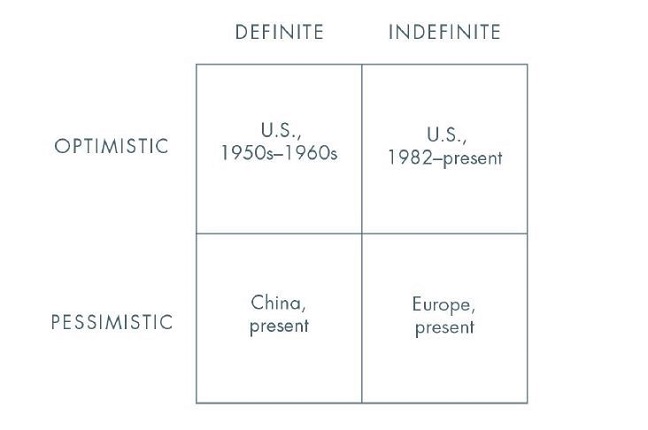This article is more than 1 year old
The good times are over, Peter Thiel tells Silicon Valley's oligarchs
Get ready for a fragmented net... and RAGNAROK
Peter Thiel makes a perfect modern sinister panto villain. From investing in deep state spookware Palantir to supporting Donald S Trump, Thiel ticks all the boxes. Throw in an eccentric medical practice – like, say, a fondness for injecting himself with young people's blood – and all that's missing is an impregnable offshore lair, and a seat on Facebook's board.
No, wait! Thiel's got those ticked too.
Then again, Thiel has always had a capacity to surprise, and the knack of a pithy one-liner. Technological innovation halted at the end of the 1960s, he told the FT three years ago. "We wanted flying cars, instead we got 140 characters." And last November he offered the most quoted one-liner accounting for why the media failed to predict the election of Donald Trump.
"I think one thing that should be distinguished here is the media is always taking Trump literally," he argued. "They don't take him seriously, but they take him literally. I think a lot of voters take Trump seriously but not literally."
Now the man with Trump's ear – and reluctantly his hand – has been offering advice to his bewildered tech oligarchs of Silicon Valley.
What's surprising about Thiel's latest observations – made in Houston this week – is how much this "self-styled libertarian Big Thinker" now sounds like Steve Bannon. Bannon is the Catholic moralist and self-styled "economic nationalist" who is Trump's chief strategist, and takes great glee in eviscerating libertarians.
In his 2014 Vatican speech, which mentions capitalism 60 times (and "crony capitalism" 13 times), Bannon first took aim at dirigisme, then the "Ayn Rand or the Objectivist School of libertarian capitalism".
"It is a capitalism that really looks to make people commodities, and to objectify people," he said.
That wouldn't sound out of place at an LSE seminar on "neoliberalism" or The Guardian's op-ed pages. So how do they get along? Perhaps because Thiel thinks the good times are over, or so he warned Silicon Valley this week.
Globalisation is over, said Thiel, and Silicon Valley can no longer hold the Whiggish view of progress as inexorable and inevitable.
"There's a technological determinism story you can tell where this is the future and China will eventually buckle under and cave and eventually adopt all of these things," Thiel said. "But then you might wonder, maybe this doesn't happen at all, and maybe it's possible for the internet to actually fragment and not to have this historical necessity to it."

From Thiel's book Zero To One
If this thinking eventually underpins the Trump administration then it will be a significant shift from the optimism – which Thiel calls complacency – that has informed US policy for two decades.
But perhaps less of a break in continuity for Thiel himself.
And if you're familiar with his book Zero To One – which evolved from lectures to business graduates at Harvard – Thiel has consistently warned against a linear view of history, where things always get better. He found value in apocalyptic pessimism to counter the Valley's Candide-like faith in progress, telling the FT in 2013 that: "I find the sort of Spenglerian decline of the West very compelling."
The problem with pessimists when they reach positions of power and influence is that their pessimism is much more likely to come true. In the same speech, Thiel's new best buddy Bannon chillingly predicted that "we’re at the very beginning stages of a very brutal and bloody conflict". In which case the good times really are over.
Before the apocalypse gets started, though, it would be ironic indeed if the billionaire often described as the avatar of techno utopianism would be the person who helped slay it. See you in the bunker. ®
